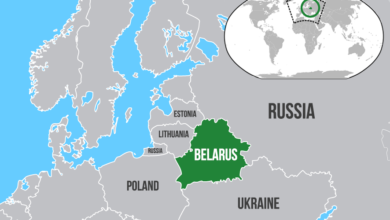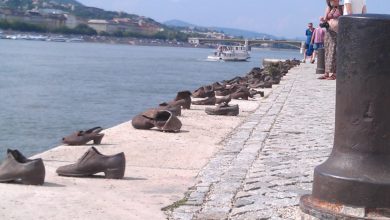In a June 12 referendum, Irish voters soundly rejected the Treaty of Lisbon, a repackaged version of the European Union constitution rejected in 2005.
|
A total of 862,000 votes were cast in Ireland, rejecting the treaty 53.4 percent to 46.6 percent. Referenda held in France and the Netherlands in 2005 decisively rejected the EU constitution; this time, the French and Dutch people were not given a chance to vote.
The international corporate-owned press has gone on the offensive, claiming that a country with a population of 4.3 million is deciding the fate of a bloc of 495 million people. In reality, Ireland was the only EU member nation where people had a say on their fate—no other EU country held a referendum on the treaty.
Many other European opponents of the treaty supported the Irish “No” votes. In England, opponents of ratification have put tremendous pressure on their government to hold a referendum of their own. The Czech Senate has postponed ratification pending a decision from their Constitutional Court.
The Communist Party of Greece, the KKE, has voiced strong opposition to the Treaty of Lisbon, saying it would strengthen the position of the European big business at the expense of the workers.
The European Union, under the guise of economic and political integration, has served the interests of the wealthy, imperialist member nations at the expense of other members. The Treaty of Lisbon seeks to further strengthen that model of “integration.”
The 287-page document is loaded with confusing bureaucratic language. It calls for reduced representation for smaller countries and expanded powers for larger ones. Ireland’s influence would be diminished due to the loss of its commissioner in the European Union’s Council of Ministers. Germany’s representation in the council would increase from 8 percent to 17 percent; France’s from 8 percent to 13 percent. Both Britain and Italy’s representation would increase by half.
Germany has chauvinistically pushed for a second referendum in Ireland rather than respect the democratic will of the Irish people. European Commission President, José Manuel Barroso, has followed suit, telling the Irish prime minister there would be time to hold a new vote.
The Irish rejection came despite all the major newspapers and political parties in the country supporting a “Yes” vote. Sinn Féin was the only party in Ireland’s parliament, the Dáil Éireann, to oppose it.
Sinn Féin President Ruairí Ó Brádaigh called the Treaty of Lisbon a “power grab” by the richest, most powerful countries for control of the European Union. He said its content is 96 percent the same as the European Union Constitution rejected by France and the Netherlands in 2005.
The party’s vice president, Des Dalton, said “The line taken by the main 26-County political parties throughout the referendum campaign was that people need not understand the Treaty of Lisbon or its implications but merely trust them in recommending its acceptance. The resounding rejection of Lisbon shows the people do not trust them.”







